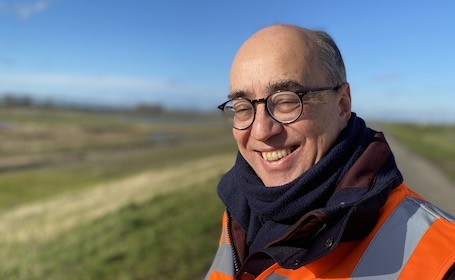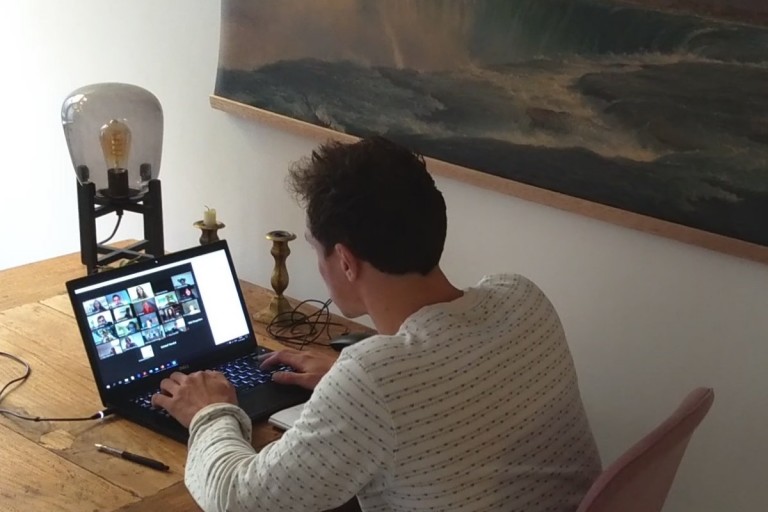The first Observer Meetings, virtual and valuable!
- 16 October 2020
- Francien Horrevorts
Mid October the online Observer Meetings took place for the partners in France, the Netherlands and Belgium. The purpose was to connect with the observer partners, inform them about the progress, to open doors for them to actively participate and learn what questions they have. We are all in this together, so despite the circumstances we want to connect and learn from each other.
The organising team consisted of Ludolph Wentholt, Yvette Pluijmers, Patrik Peeters, Pieter Rauwoens, Nicolas Neyrincx, Stephan Rikkert, Cédrine Alleon, Wietse van de Lageweg, Marian Booltink and Philippe Sergent.
Programme Observer Meetings
The programme and set up of the Observer Meetings was similar in all three countries. The first part revolved around the main questions, goals and set up of the project. How can the partners be involved as a participant or ambassador of the project? The second part of the meeting focused on the actual activities of the project. What experiments and research have been done and planned and how do these activities meet the questions or issues that our partners have to deal with in their jobs?

"It was good to see the partners’ interest and involvement in Polder2C’s!"
Ludolph Wentholt
French Observer Meeting
The French meeting, organised by Philippe Sergent from CEREMA and Cédrine Alleon from ISL Engineering, was a great success. Cédrine: “I was impressed by the high number of people that attended the meeting and their interest in all of the aspects of the project. The participants had many different backgrounds and their interests varied from very technical aspects of the in situ testing to crisis management.” The participants actively engaged in the meeting and also tried to link the project to their work field. “People were wondering whether some of the solutions we are trying out in Polder2C’s would also work on their specific levees. This may be something we can follow up on depending on the outcomes of our experiments.” explains Cédrine. “But until then, we will keep everyone up to date via our vlogs, more of these online meetings and hopefully live sessions as well to really get to know each other a bit better.”

Dutch Observer Meeting
Stephan Rikkert, TU Delft, involved in organisation of the Dutch observer meeting states: “The observers were all very enthusiastic. Our research really ties in with their knowledge gaps and what actually occurs in practice. The participants let us know that they would like to have more interactive sessions and field trips. We will definitely act on their wishes, as far as Covid lets us.” Also, Stephan was positively impressed by the interactive character of the meeting: “The atmosphere was really relaxed and open. Everyone was actively engaged and sharing ideas, which made it a very interesting session. It was dynamic, which cannot always be said about online meetings.”
Belgian Observer Meeting
The final session was the Belgian Observer Meeting, organised by Patrik Peeters, from Flanders Hydraulics Research, Pieter Rauwoens from KU Leuven and Nicolas Neyrinncx from ISL Engineering. Patrik also thinks the session was well received: “The people present were eager to learn more about our results and lessons learned. Besides the Flemish Waterway, most of the participants in our session do not work in the field, they need to know that we are technically capable and in control of specific situations.” Therefore, sessions like the Observer Meeting are suitable to keep them involved and up to date. “The online session was a good medium even more accessible for some people. It costs less time and it is easy to join the meeting.” adds Patrik.
"The online session was a good medium even more accessible for some people. It costs less time and it is easy to join the meeting."
Patrik Peeters
All in all, the Observer Meetings have proved to be a success and will definitely be organised again.
Explainer video
Since the Polder2C’s project is a project with quite a lot of areas of expertise and activities involved, we have had explainer videos made in French, Dutch and English. They were shown during the Observer Meetings. Check the video:
